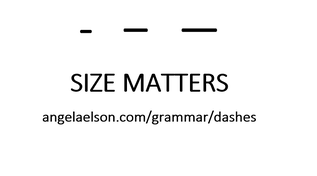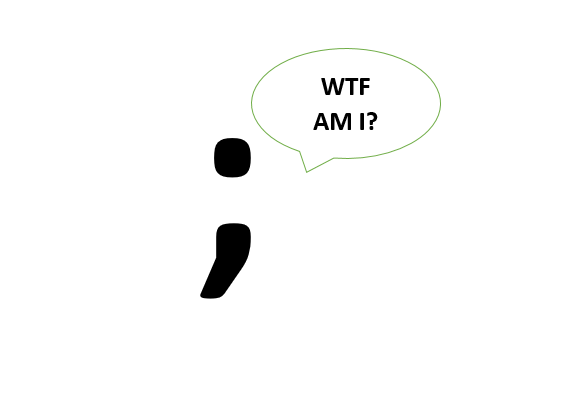0 Comments
My husband, Brady, is a sucker for the lotto. Every time the Powerball jackpot is even remotely high, he buys a ticket, and then I spend the evening eating ramen and listening to him hypothesize about what would happen if we were to win. I find this exercise really depressing, but it seems to put him in a subjunctive mood.
YOU TRY!
Answers
Grammatical quandaries got you down? Hit me up. In passive voice: This week’s grammar tip is brought to you by a query from the peanut gallery!
In active voice: A query from the peanut gallery brought you this week’s grammar tip!
My husband, Brady, took me fishing this weekend, which is an activity I find very boring. So I pondered grammar to pass the time—that is until Brady caught a fish that died as he was trying to release it back into the lake. As that poor, doomed bass floated by, my thoughts turned to the beauty of life, the cruel inevitability of death, and then, naturally, to the difference between that and which.
Wait… there’s a difference?
Say whaaaaaat?
So you could say “that” helps define a sentence, while “which” offers extra information or helps clarify the meaning of the sentence as a whole?
What happens if I mix them up?
How do I punctuate “that” and “which”?
I hope this clears up some grammatical issues that have been haunting you. A life-affirming request from the peanut gallery begs to know the difference between “well” and “good,” which is all, well, well and good.
But before we can address this grammatical conundrum, we must first refresh our knowledge of adjectives, adverbs, and not one but two kinds of verbs! Which means…
You Try—Round 1: She is a good dancer. She dances well. He uses grammar well in his writing. He has good grammar. You Try—Round 2: That dress is a little tight. It doesn’t look good on you. Do you have a cold? You don’t look well. (“Well,” in this instance, is an adjective describing the appearance of health. Because you’re using an adjective, “good” is also an acceptable answer.) This pie is delicious! It tastes so good! You know what? I think I do have a cold. I can’t taste so well. Sometimes when we’re foraging for dinner in our pantry, my husband, Brady, who is originally from Australia, will deem a meal consisting of crackers, stale corn chips, and old Halloween candy “a bitsa” because it contains “bits of everything.” For your linguistic pleasure, here is Grammar-Tip bitsa cobbled together from mistakes I’ve seen recently on the Internet—and some I’ve ruefully, shamefully, sinfully been making myself. (Don’t tell!)
*It's not. Q. First of all, what is an infinitive? A. An infinitive is the “to” form of a verb: to run, to go, to jump, to wear, etc.
Q. So what’s a split infinitive? A. A split infinitive is when you insert an adverb between the “to” and the verb. The most famous example is from Star Trek: To boldly go where no man has gone before.
Q. Are split infinitives bad? A. Technically, there are no grammatical rules that state it’s improper to split infinitives, but for some reason it’s been drilled into writers since grade school that you shouldn’t. Q. So should I split infinitives? A. You can, but it’ll just annoy people who only think they are as grammatically informed as you are. Rather than reeducate the whole world, it’s easier to avoid splitting infinitives:
Fun Fact: The “Don’t Split Infinitives” rule was developed in the mid-nineteenth century when Victorian scholars (having nothing else to do since there was no TV yet) decided to return to pure Latin grammatical rules. Have a grammar question? Submit it here for future Grammar Tips! Q. What is a colon and why should I use one?
A. A colon looks like : and is used to set up anticipation for the second part of a sentence.
Q. How do I use a colon? A. Colons should always be used after an independent clause
Q. What is a semicolon? A. A semicolon looks like ; and is used to connect two independent clauses.
Q. Why would you use a semicolon rather than a period? A. You can connect two short, related sentences with a semicolon rather than a period if you think they are too choppy to stand on their own or if you want to draw attention to the relationship between them.
Fun fact! The colon made its debut in 1550, while the semicolon didn’t roll up until 1644. Q. Seriously: What is up with affect and effect?
A. I know, right? What makes “affect” and “effect” especially confusing is the fact that these words do double duty as both nouns and verbs. While there are many definitions for “affect” and “effect,” I find that for most daily use, when you need a noun you go with “effect,” and when you need a verb you go with “affect,” like so: Affect: verb
Q. But sometimes I see “effect” as a verb… A. While “affect” means to influence, “effect” as a verb refers to putting something into operation:
Q. So “effect” can be a verb, but usually not as often as “affect” is? A. Right! |
Let me correct your grammarAs a former ESL teacher and professional proofreader, I'm more than happy to tell you where to put the comma.
Hit me up with your conundrums! |

